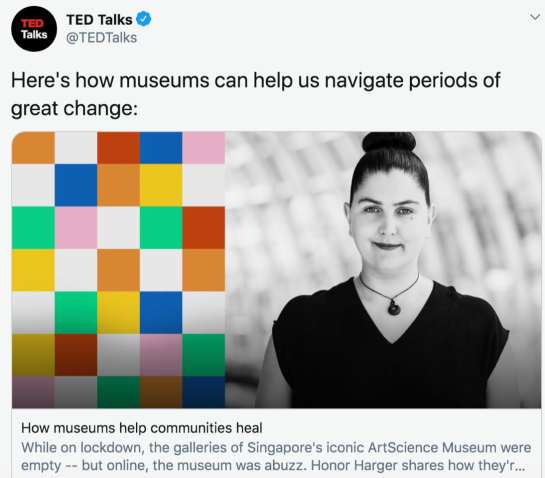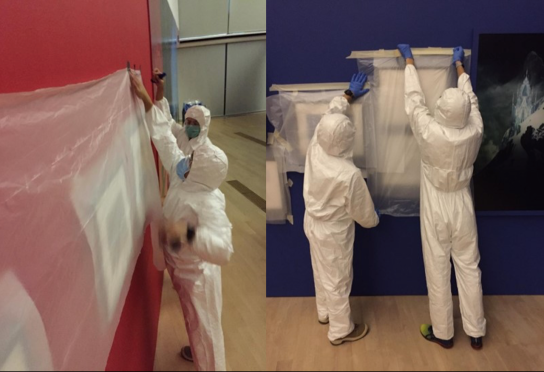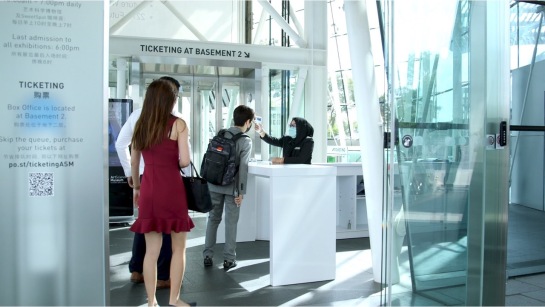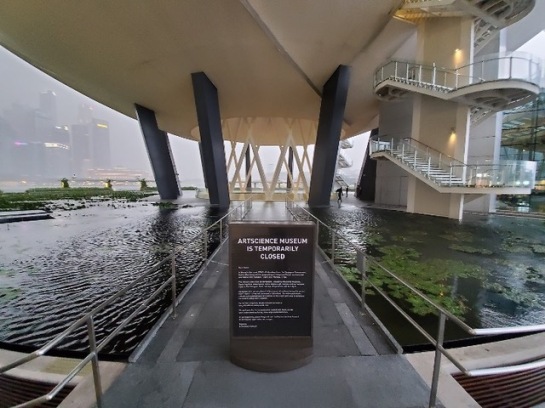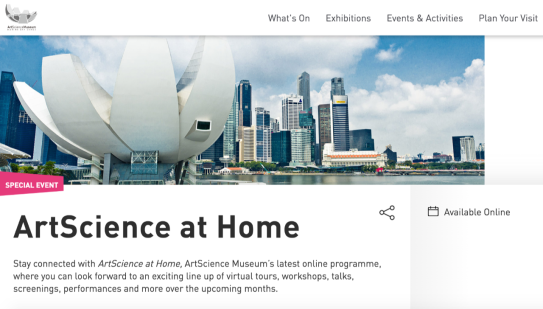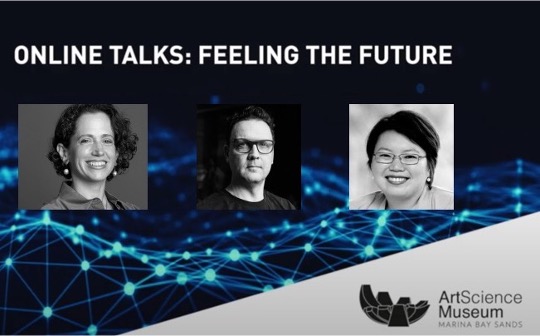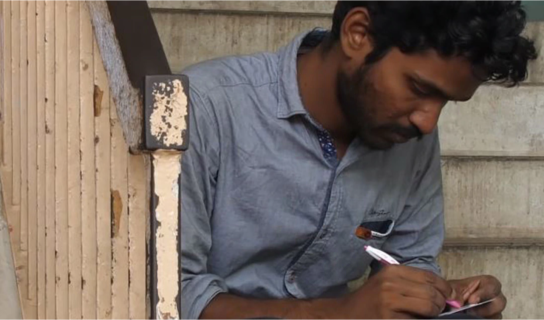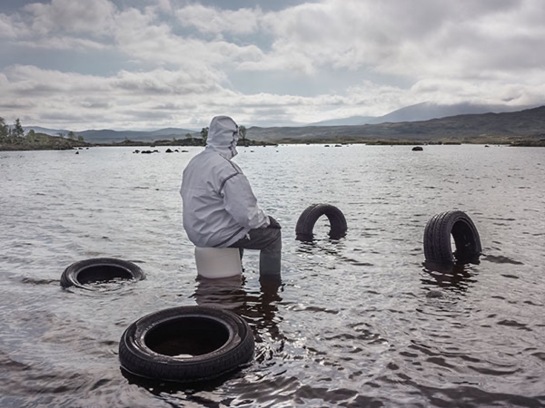TED Talk for TED 2020
TED Talk for TED2020
29 June 2020
In June 2020, in the midst of the worst of the Covid-19 pandemic, I gave a talk for the TED2020 Conference, Uncharted (https://pastconferences.ted.com/TED2020/).. Originally intended to be held in Vancouver, the conference pivoted online due to the pandemic.
My talk outlined how ArtScience Museum are remaining active within our community in Singapore, by spinning up an online programme of streamed talks, performances and workshops that investigate the COVID-19 landscape and uplift marginalized voices.
The talk was hosted by TED’s current affairs curator Whitney Pennington Rodgers, was recorded on 17 June 2020 and is published on the TED website: https://www.ted.com/talks/honor_harger_how_museums_help_communities_heal
Transcript of my TED2020 Talk
I’m the Executive Director of ArtScience Museum, an iconic building in Singapore that explores the intersection of art, science, technology and culture.
Six months ago, we were a hive of activity at the heart of one of Singapore’s busiest areas – Marina Bay – welcoming an average of 2,800 visitors a day. We were hosting two exhibitions that speculated on the future, one that imagined how climate change might shape the next two centuries, and another that featured immersive installations by teamLab. Visitors young and old flocked to the museum to catch a glimpse of the future, and engage in learning experiences using physical interaction and social participation.
Then, the pandemic struck.
The Pandemic
In a matter of two short months, our reality completely changed. From early February, the museum began screening the temperatures of every visitor who came. We introduced safe distancing measures. And our curators and conservators had to adjust to a very different way of working in the galleries.
The closure of our borders and the strict safe distancing laws that Singapore passed to manage the pandemic, cut our capacity by 89%. That means we had only a tiny fraction of the visitors that we welcomed at the beginning of the year. Our normally lively galleries fell silent.
Then in April, like so many other museums, we closed, as Singapore went into its own version of lockdown.
As we contemplated a future in a world wracked by the pandemic, it seemed clear that everything we knew about how to run a museum – from staging exhibitions, to running education programmes, to setting budgets, and communicating with audiences – was no longer valid.
We had some dark days, trying to figure out how it would be possible – economically and culturally – to run a museum for only 11% of the audience we once had. We realised we were going to have to say goodbye to some traditions and norms that we had held dear. This was difficult.
But there was no time to mourn.
Building Back Better
Within two weeks of lockdown, we spun up an online programme we call ArtScience at Home.
It enables visitors to experience museum programmes from the comfort of their homes.
We responded directly to the context of Covid-19 through:
– online talks that explore how we adapt to uncertain futures;
– online workshops that gave families with creative learning activities to do at home;
– and online performances by local artists, giving us a way to support our cultural community.
ArtScience at Home is now our primary public programme, and a vital way for us to connect with existing and visitors. It’s a new chapter in the museum’s evolution, and perhaps an expression of a more resilient and sustainable way of working during the pandemic era.
With the pandemic forcing all of us to work from home, adopting a different pace of work, we also started noticing things we hadn’t paid attention to before. We started listening to the voices of members of the community who been marginalised, and kept out of sight. We heard stories that came from unexpected places that needed to be told.
So, ArtScience at Home has hosted conferences featuring people with disabilities talking about how the move to online working was creating new opportunities for them.
And we are currently screening the first film made by a migrant worker in Singapore, Salary Day by R. Madhavan.
$alary Day by R. Madhavan, Presented online at ArtScience at Home, 2020: https://www.marinabaysands.com/museum/events/salary-day.html)
The new reality we find ourselves in the wake of Covid-19 means our on-site visitation is going to be dramatically reduced by safe distancing for the foreseeable future.Whilst this is certainly worrying, there are surprising impacts that we hadn’t expected. We are listening more – to our communities locally. We are starting to reflect on how we can amplify the voices of talented storytellers in our more marginalised communities.
We now understand that our role as museum professionals goes beyond being custodians of an iconic building. Our role is also to provide care for the community we exist within.
We find ourselves gravitating towards the original meaning of the word curator, which in Latin means ‘to care’.
Building back better after Covid-19 means curating in the original sense of that word – caring for each other and for our community.
Imagining the Future
One of the ways that we can do that is by presenting visions of a different and – perhaps better – future. Confronting the future is something we’ve specialised in through exhibitions like our current show, 2219, which takes visitors to a world transformed by climate change, set two hundred years from now. As we face we the global crisis of Covid-19, this type of ‘futuring’ work feels more important now, than ever.
Purple by John Akomfrah, 2219: Futures Imagined at ArtScience Museum, 2019-2020
Rene Denfeld has said of people in crisis: “I’ve found that the people who survive — the people who end up thriving, even — are the people who have the power of imagination. If you think about it, imagination is actually a radical act. Because if you have an imagination, you can imagine yourself in a different future.”
(Reference: https://www.guernicamag.com/rene-denfeld-what-happens-after-the-trauma/#:~:text=And%20one%20thing%20I’ve,yourself%20in%20a%20different%20future.)
We have always been a museum that imagines the future.
So perhaps, this is our time.
Online link to the Talk: https://www.ted.com/talks/honor_harger_how_museums_help_communities_heal
